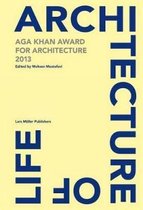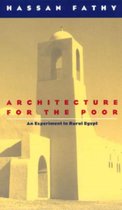Architecture and Politics in Nigeria The Study of a Late Twentieth-Century Enlightenment-Inspired Modernism at Abuja, 1900–2016
Afbeeldingen
Sla de afbeeldingen overArtikel vergelijken
- Engels
- Paperback
- 9780367667955
- 30 september 2020
- 300 pagina's
Samenvatting
In 1975, the Nigerian authorities decided to construct a new postcolonial capital called Abuja, and together with several internationally renowned architects these military leaders collaborated to build a city for three million inhabitants. Founded five years after the Civil War with Biafra, which caused around 1.7 million deaths, the city was envisaged as a place where justice would reign and where people from different social, religious, ethnic, and political backgrounds would come together in a peaceful manner and work together to develop their country and its economy. These were all laudable goals, but they ironically mobilized certain forces from around the country in opposition against the Federal Government of Nigeria. The international and modernist style architecture and the fact that the government spent tens of billions of dollars constructing this idealized capital ended up causing more strife and conflict. For groups like Boko Haram, a Nigerian Al-Qaida affiliate organization, and other smaller ethnic groups seeking to have a say in how the country’s oil wealth is spent, Abuja symbolized everything in Nigeria they sought to change.
By examining the creation of the modernist national public spaces of Abuja within a broader historical and global context, this book looks at how the successes and the failures of these spaces have affected the citizens of the country and have, in fact, radicalized individuals with these spaces being scene of some of the most important political events and terrorist targets, including bombings and protest rallies. Although focusing on Nigeria’s capital, the study has a wider global implication in that it draws attention to how postcolonial countries that were formed at the turn of the twentieth century are continuously fragmenting and remade by the emergence of new nation states like South Sudan.
Productspecificaties
Inhoud
- Taal
- en
- Bindwijze
- Paperback
- Oorspronkelijke releasedatum
- 30 september 2020
- Aantal pagina's
- 300
- Illustraties
- Nee
Betrokkenen
- Hoofdauteur
- Nnamdi Elleh
- Tweede Auteur
- Nnamdi Elleh
- Hoofduitgeverij
- Routledge
Overige kenmerken
- Extra groot lettertype
- Nee
- Product breedte
- 174 mm
- Product lengte
- 246 mm
- Studieboek
- Nee
- Verpakking breedte
- 174 mm
- Verpakking hoogte
- 246 mm
- Verpakking lengte
- 246 mm
- Verpakkingsgewicht
- 453 g
EAN
- EAN
- 9780367667955
Je vindt dit artikel in
- Categorieën
- Taal
- Engels
- Beschikbaarheid
- Leverbaar
- Periode
- ca. 1950-1999, ca. 2000-heden
- Boek, ebook of luisterboek?
- Boek
Kies gewenste uitvoering
Prijsinformatie en bestellen
De prijs van dit product is 50 euro en 99 cent.- Prijs inclusief verzendkosten, verstuurd door bol
- Ophalen bij een bol afhaalpunt mogelijk
- 30 dagen bedenktijd en gratis retourneren
- Dag en nacht klantenservice
Rapporteer dit artikel
Je wilt melding doen van illegale inhoud over dit artikel:
- Ik wil melding doen als klant
- Ik wil melding doen als autoriteit of trusted flagger
- Ik wil melding doen als partner
- Ik wil melding doen als merkhouder
Geen klant, autoriteit, trusted flagger, merkhouder of partner? Gebruik dan onderstaande link om melding te doen.








